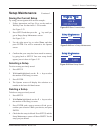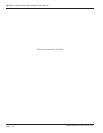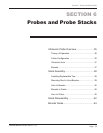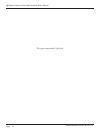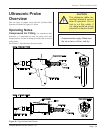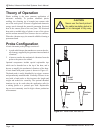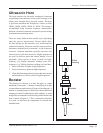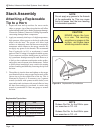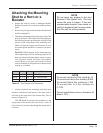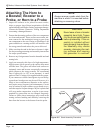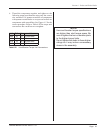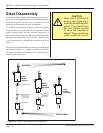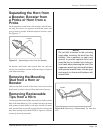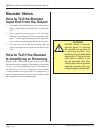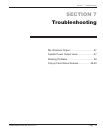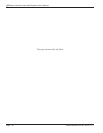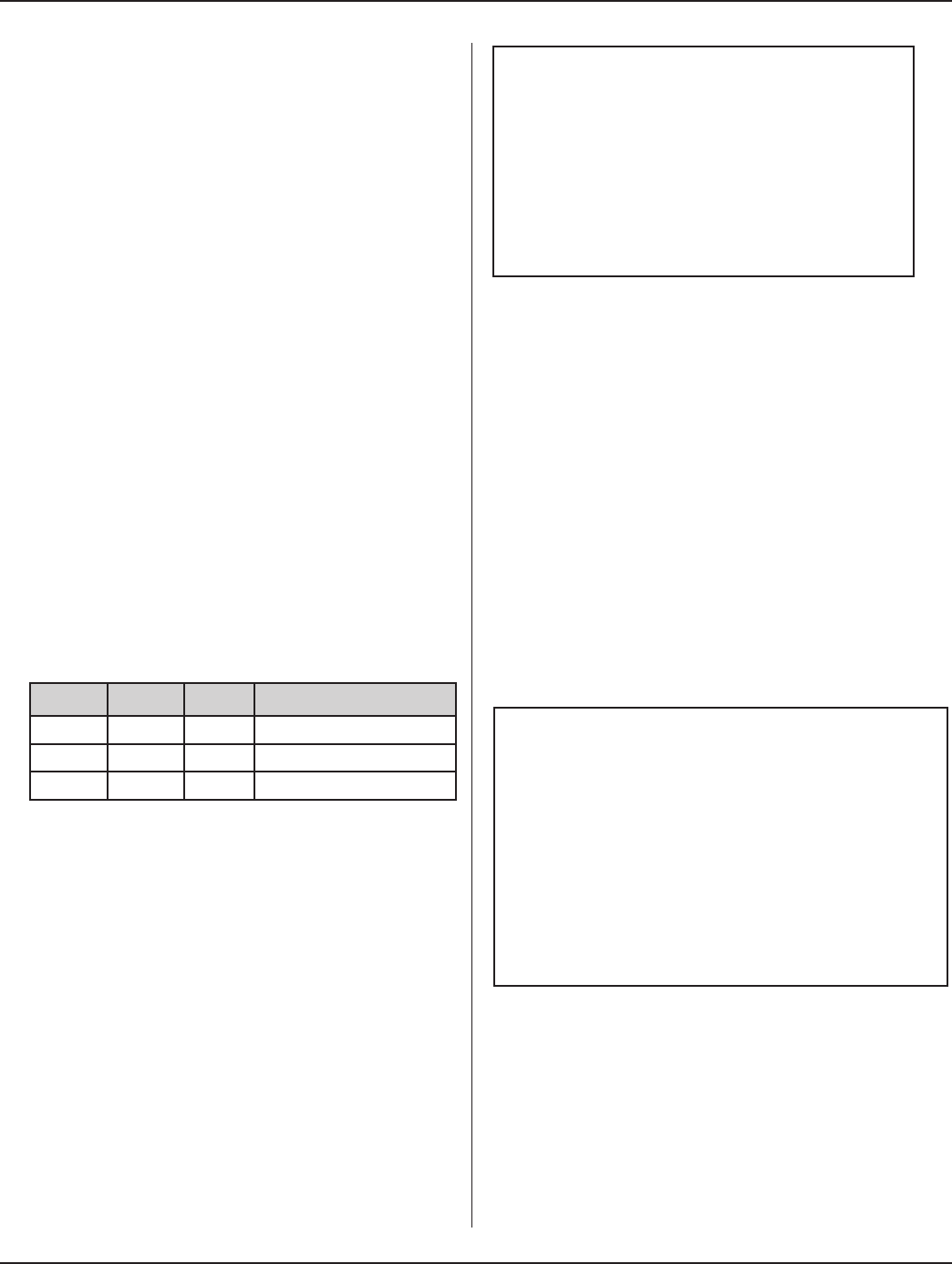
Page 39
Section 6 – Probes and Probe Stacks
Dukane Manual Part No. 403-577-01
Attaching the Mounting
Stud to a Horn or a
Booster
1. Inspect the stud for cracks or damaged threads.
Replace the stud if it is cracked or otherwise dam-
aged.
2. Remove any foreign matter from the threaded stud
and the mating hole.
3. Thread the mounting stud into the input* end of the
horn or the input* end of the booster and tighten to
the following torque specications using an Allen
wrench in the socket head of the mounting stud.
Table 6-II lists the torque specications in units
for both English and Metric systems of measure-
ments.
DO NOT hold the booster by the mounting rings
when tightening stud. The mounting rings have a
shear pin which could snap under excessive torque.
Use a spanner wrench (on horns with spanner
wrench holes) or an open end wrench (on horns
with wrench ats) to keep the horn or booster from
turning in your hand.
in-lb ft-Lb N-m Size
12-18 1 - 1.5 1.4 - 2 1/2” x 20 tpi studs
12-18 1 - 1.5 1.4 - 2 3/8” X 20 tpi studs
12-18 1 - 1.5 1.4 - 2 8 mm studs
*
Always assemble the mounting studs that mate
boosters, transducers and horns to the input end of
the horn or the input end of the booster rst. This is
shown in Figure 6-6.
NEVER thread a stud into the transducer or the
output end of the booster rst. See Booster Notes in
this section for correctly identifying the output end of
a booster.
Table 6-II Stud Torque Unit Conversions
NOTE
Do not apply any grease to the stud
threads or the tapped hole. This may
cause the stud to loosen. If the stud
wanders within the joint, it can vibrate, re-
sulting in excessive heat. In some cases,
this can melt the tooling material.
NOTE
To convert inch-lbs to ft-lbs, divide by 12.
To convert inch-lbs to Nm, divide by 8.852.
To convert ft-lbs to Nm, multiply by 1.356.
To convert Nm to ft-lbs, multiply by
0.7376.
Torque specications have a tolerance of
about ± 10%.



